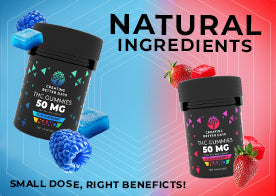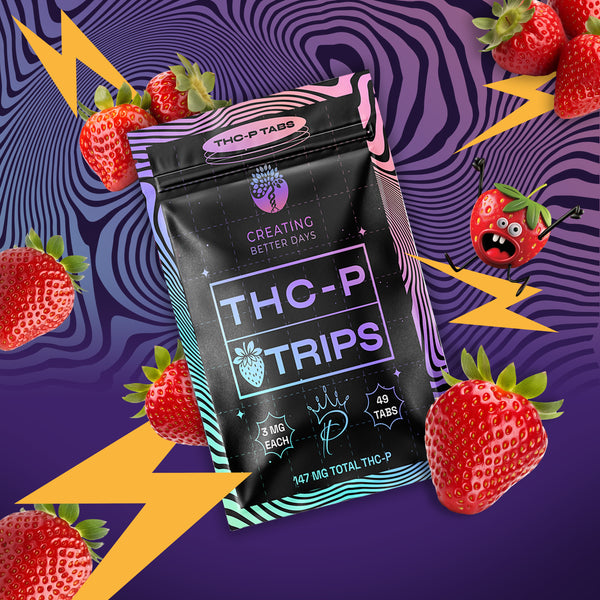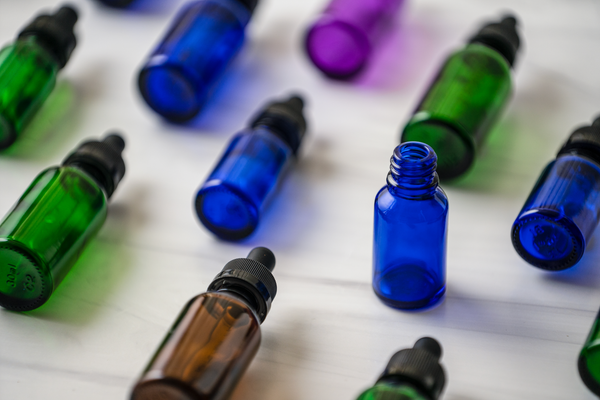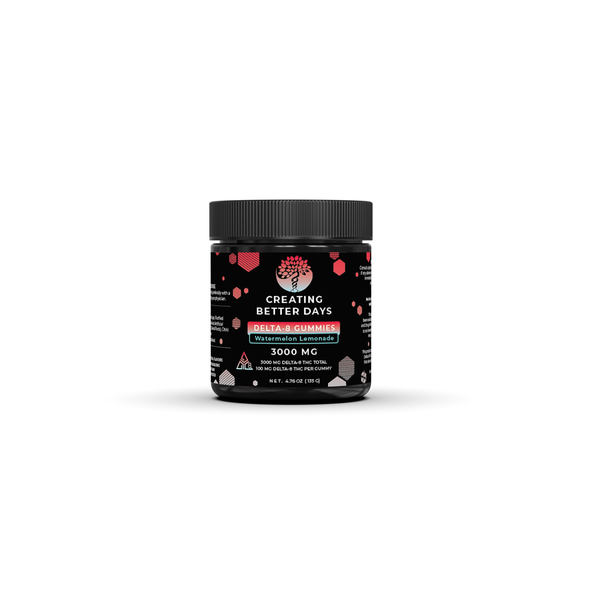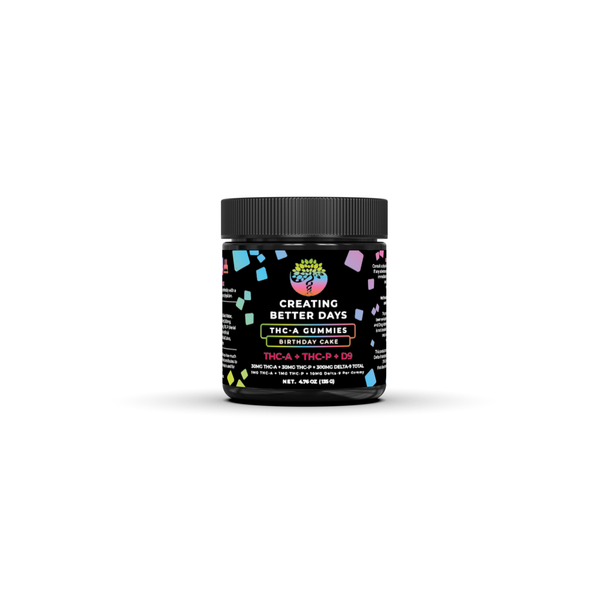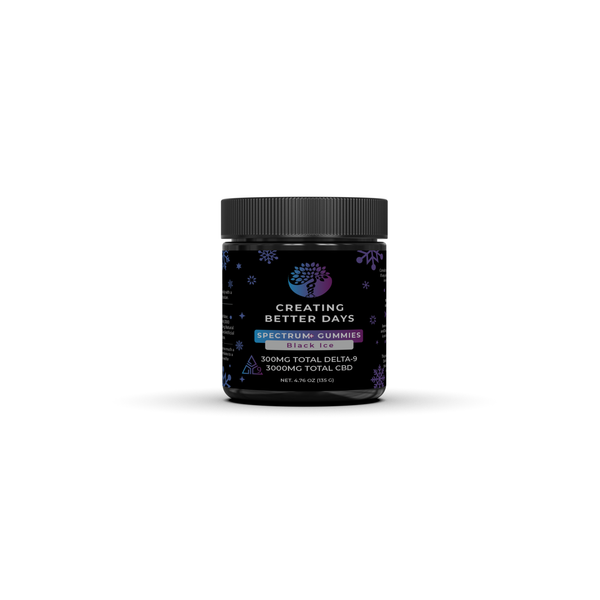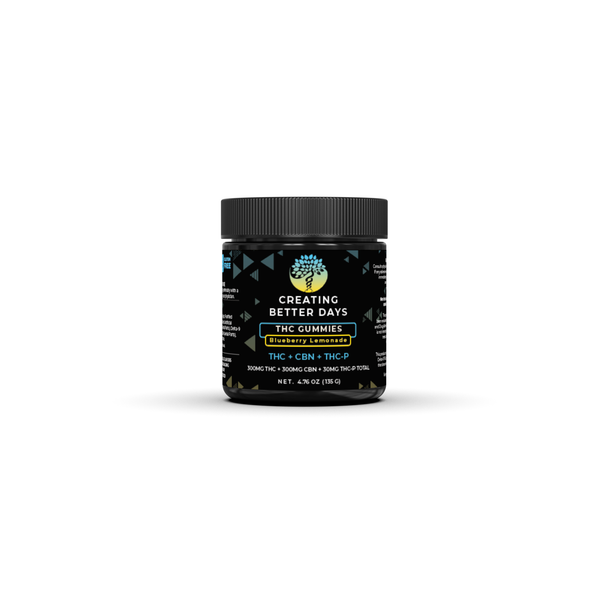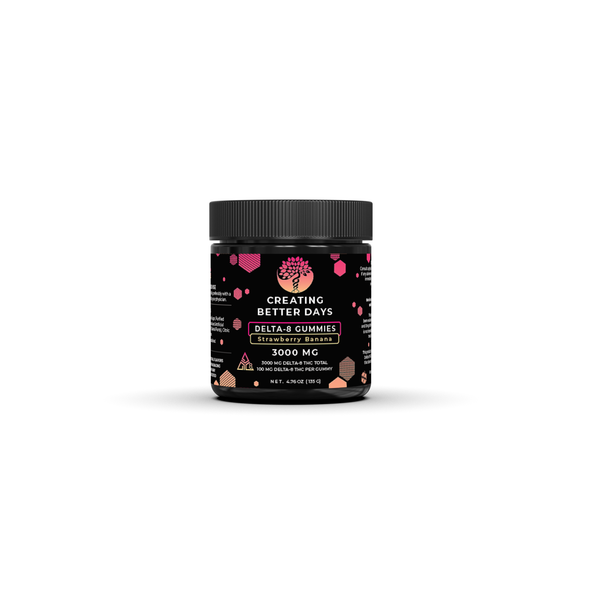
CBD Oil Vs CBD Gummies: A Comprehensive Comparison
CBD oil and CBD gummies are the most popular CBD products. Both are effective, but choosing between the two can be tricky. Let's take a closer look at CBD Oil Vs CBD Gummies so that you can make your own informed decision.
Table of contents
Key Takeaways
Before we dive into the details, here's a quick rundown of what you'll learn:
-
How CBD oil differs from CBD gummies.
-
Their manufacturing process and how they work.
-
Pros and cons to consider for both.
-
Key factors include bioavailability, onset time, and convenience.
-
What product might be right for you, based on your needs?
Now let's compare CBD oil with CBD gummies.
What is CBD?
The natural compound cannabidiol, or CBD, is found in the cannabis plant. Hemp and cannabis plants contain over 100 different cannabinoids. Unlike THC, the psychoactive compound in cannabis, CBD doesn't get you "high." It's been widely studied for its potential benefits, which is why CBD products have become so popular.
But what exactly does CBD do? The endocannabinoid system of the body regulates many bodily functions, including mood, sleep, and pain. However, it's important to note that while many people report positive experiences, the FDA has not officially approved CBD products for treating specific health conditions.
Let's now compare two of the most popular ways to consume CBD: CBD oil and CBD gummies.
CBD Gummies
CBD gummies are sweet, chewy treats containing CBD. It provides a tasty and discreet way to consume CBD, making it an appealing option for those who don't enjoy the earthy taste of CBD oil.
How CBD Gummies are Made
CBD gummies are typically made by infusing a base of gelatin or pectin with CBD oil or CBD isolate. The CBD is extracted from the hemp plant and then added to a mixture of sugar, flavorings, and sometimes additional ingredients like vitamins or other cannabinoids. The mixture is poured into molds, where it solidifies into the familiar gummy form.
Flavors and Dosage
CBD gummies come in a variety of flavors and dosages, so you can easily find one that fits your preferences. There are many fruity flavors to choose from, including strawberry, mango, and raspberry. CBD dosage per gummy varies, generally ranging from 5 to 25 milligrams per piece. This makes it easy for you to control how much you consume and find the right dose for your needs.
Pros and Cons of CBD Gummies
Pros:
-
Profile: CBD gummies are known for their flavor profile. They are often much more pleasant to use than CBD oil, which has a stronger, more herbal profile.
-
Discreet: Gummies are small and portable, so they are easy to carry without drawing attention.
-
Easy to Dose: Gummies come with premeasured doses, so you don't have to calculate how much CBD you're consuming.
Cons:
-
Slower Absorption: CBD in gummy form needs to be digested, meaning it can take longer for the effects to kick in compared to CBD oil.
-
Sugar Content: Some gummies contain sugar or artificial sweeteners, making them unsuitable for people watching their sugar intake.
CBD Oil
Alternatively, CBD oil is a liquid form of CBD that is taken sublingually (under the tongue) for quicker absorption into the bloodstream. This product can be used in a variety of ways, including adding it to food, drinks, or simply taking it as is.
CBD Oil Extraction Methods and Types
Typically, CBD oil is extracted from hemp plants using one of several methods:
CO2 Extraction: This method uses high-pressure carbon dioxide to pull CBD from the plant without the use of heat or solvents. This is one of the most efficient and safest extraction methods.
Extraction with solvents: CBD can be extracted with solvents such as ethanol or butane. While less expensive, it can leave traces of solvents behind if not properly processed.
Oil Extraction: In this method, CBD is extracted using carrier oils like olive oil. While this method is more natural, it yields a less potent product.
Additionally, CBD oil comes in several forms:
Full-Spectrum CBD Oil: Contains cannabinoids, terpenes, and other beneficial compounds from the cannabis plant.
Broad-Spectrum CBD Oil: Contains most cannabinoids found in full-spectrum CBD oil, but with THC removed.
CBD Isolate: CBD that is 99% pure and does not contain any cannabinoids or compounds.
Pros and Cons of CBD Oil
Pros:
Quick Absorption: CBD oil is absorbed directly into the bloodstream when taken sublingually, resulting in faster effects. CBD oil absorbed directly into the bloodstream results in quicker effects.
Highly Potent: CBD oil typically offers a higher concentration of CBD than gummies, so it can be more effective for those needing a higher dose.
Versatile: You can use CBD oil in various ways, such as mixing it into your food or beverages, or even applying it topically.
Cons:
Taste: Many people find the taste of CBD oil to be off-putting, especially if they don't enjoy the earthy flavor.
Messy: Using CBD oil can sometimes be a bit messy, especially if you're on the go and don't have time to measure out a proper dose.
Key Differences
Now that we've looked at both CBD gummies and CBD oil, let's compare the two in a few important areas.
1. Absorption and Bioavailability
A substance's bioavailability refers to how much of it is absorbed by the body. Since CBD oil is absorbed directly into the bloodstream, it has a higher absorption rate than other oils when taken sublingually. CBD gummies, on the other hand, must be digested first, which means it can take longer for the body to absorb the CBD, resulting in lower bioavailability.
2. Onset of Potential Effects
Because CBD oil is absorbed more quickly, you'll typically feel its effects faster, usually within 15 to 30 minutes. Since CBD gummies need to be digested, it could take between 30 minutes and 2 hours for the effects to kick in.
3. Portability and Convenience
CBD gummies are easy to carry around and don't require any special tools or preparation. You can pop a gummy in your mouth whenever you need it. CBD oil, however, requires a dropper and may not be as discreet, especially if you're using it in public. Additionally, you'll need to measure the dosage yourself.
Which One to Choose?
What's better for you, CBD oil or CBD gummies?
If you prefer a quick, fast-acting option and don't mind the taste of CBD, CBD oil might be the way to go. As well as adjusting your dosage, this is a great option if you prefer precision.
However, if you're looking for a convenient, tasty way to consume CBD, CBD gummies might be your best bet. They're especially good if you don't need the effects to kick in right away and prefer a more enjoyable experience.
Final Thoughts
Both CBD oil and CBD gummies offer unique benefits, so your choice will largely depend on your preferences and lifestyle. Whether you opt for the fast-acting oil or the tasty, convenient gummies, both can be great additions to your wellness routine.
CBD products of high quality can be found at Creating Better Days. Whether it's CBD oils, tinctures, or gummies, we craft them with care to help you feel your best.
Frequently Asked Questions about CBD Gummies vs. CBD Oil
Are CBD Gummies Legal?
Yes, CBD gummies are legal in most states if they are made from hemp and contain less than 0.3% THC.
Can CBD Gummies Get You High?
No, CBD gummies won't get you high since they contain no or very little THC, the psychoactive compound in cannabis.
Can CBD Oil be Used Topically?
Yes, CBD oil can be applied directly to the skin. It's often used in lotions or creams for localized relief.
Want to know more about CBD Oil Vs CBD Gummies? Contact our customer service team at info@creatingbetterdays.com or call 1 (800) 215-0223 for clarification on all questions. We are happy to answer any questions you may have. Get answers to all your questions about CBD in our blog section.

